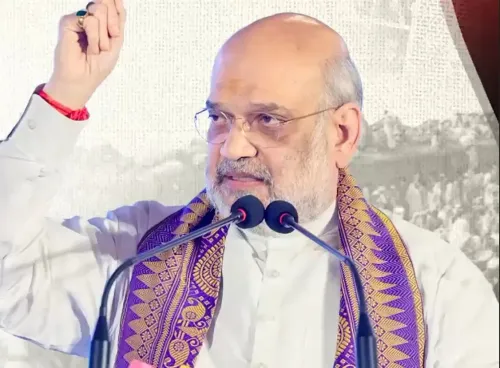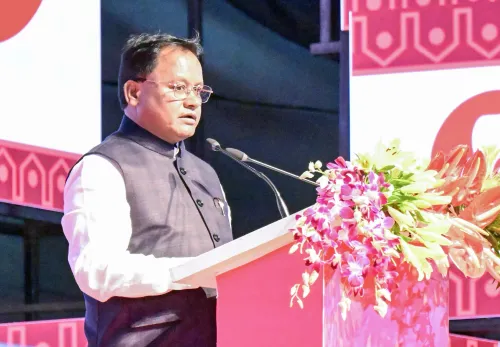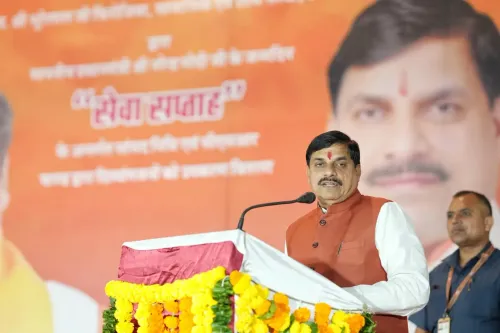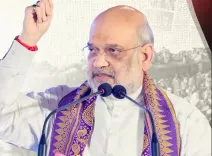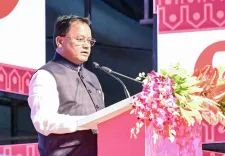Will the SC's Four-Week Extension Lead to J&K's Statehood Restoration?
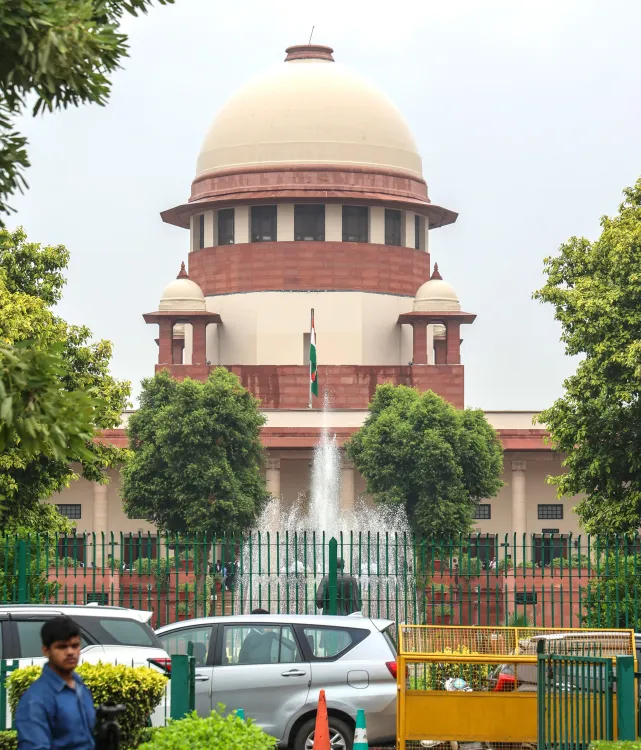
Synopsis
Key Takeaways
- Supreme Court grants four weeks for government to respond.
- Petitions demand timely restoration of J&K statehood.
- Security concerns like the Pahalgam attack are being considered.
- Ongoing discussions between Centre and state regarding statehood.
- Assembly elections to be held by September 30, 2024.
New Delhi, Oct 10 (NationPress) The Supreme Court has granted an additional four weeks for the Union government to address a series of petitions calling for the timely restoration of statehood to Jammu and Kashmir (J&K). A bench led by Chief Justice of India (CJI) B.R. Gavai and Justice K. Vinod Chandran issued this order after Solicitor General (SG) Tushar Mehta requested more time to respond to claims that the commitment made before the Constitution Bench for restoring J&K's statehood should be fulfilled.
SG Mehta mentioned, “There are various circumstances and multiple angles to consider. Additionally, there are cross-border implications,” pointing out that some parties aim to depict a “bleak image” of J&K internationally.
“The Jammu and Kashmir region has seen progress, and the sentiment among nearly 99.99% of its populace is one of support for the Government of India,” he stated.
The CJI Gavai-led bench acknowledged SG Mehta’s assertion that despite significant advancements in J&K, events like the Pahalgam terror incident must be taken into account before reaching a final verdict.
The apex court also highlighted that elections for the J&K Assembly were held peacefully, and discussions are ongoing between the Centre and state governments about restoring statehood.
During a prior hearing on August 14, the same bench referenced the “ground realities” and the Pahalgam attack while agreeing to the Centre’s request to defer the matter for eight weeks.
“Consideration must be given to ground realities. The events in Pahalgam cannot be overlooked,” the apex court remarked to the petitioners advocating for an expedited hearing on the statehood restoration requests.
The petitioners contended that the ongoing delay in reinstating statehood is seriously infringing upon the rights of Jammu and Kashmir's citizens and undermines the principles of federalism.
They argued that failing to restore statehood in a timely manner violates federalism, a fundamental aspect of the Constitution's Basic Structure.
It is worth noting that a five-judge Constitution Bench, led by former CJI D.Y. Chandrachud, had previously left open the question of whether Parliament could abolish statehood by converting a state into one or more Union Territories, based on an oral commitment made on behalf of the Centre regarding the restoration of J&K's statehood.
During the oral hearings, the Centre’s legal representative indicated that the Union Home Ministry could not provide a specific timeline, stating it would take “some time” for J&K's statehood restoration.
The Constitution Bench had instructed the Election Commission of India (ECI) to prepare for Legislative Assembly elections in J&K by September 30, 2024, emphasizing that “statehood restoration must occur as soon as possible.”

